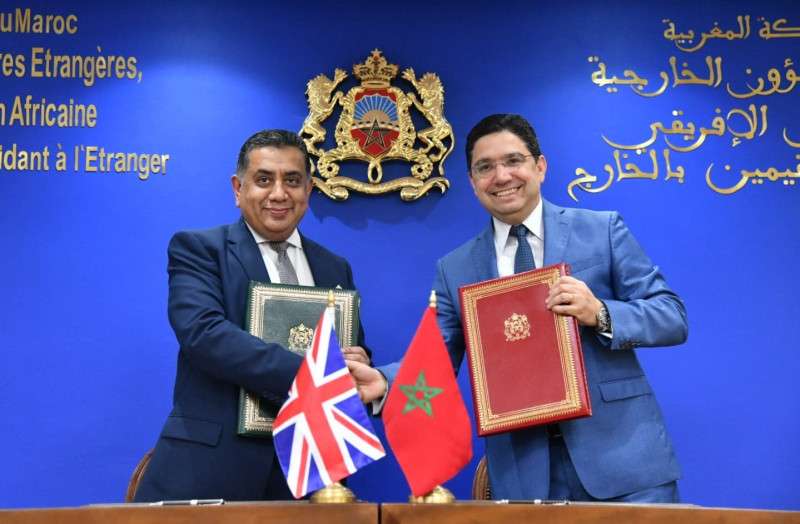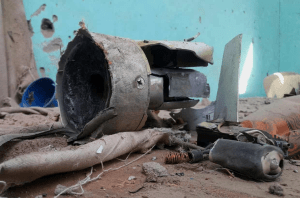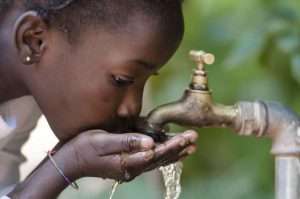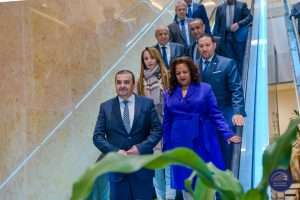UK now fully behind Morocco’s human rights abomination?

According to a recent report from state owned media in Morocco, a British minister fully supports Rabat’s arrests of journalists and ex ministers who are in jail simply for criticizing the government’s narrative
The British and Moroccan governments appear to be forging stronger relations, following a visit from UK Minister of State for the Middle East, North Africa, South Asia and the United Nations Lord Ahmad of Wimbledon who paid a visit to the country’s foreign minister on the 9th of May.
The meeting produced a great deal of photo opportunities of the two men and a joyful joint statement although it is hard for journalists to interpret the level of the so-called special relationship when the only “reporting of the event” was written up by Morocco’s state owned news agency (MAP), an outlet not especially know for its objectivity when reporting on its own country’s affairs. MAP tends to work as a PR agency to promote the country and to deliver a perceived truth of reality rather than the actual facts.
The closed door meeting by both ministers – which allowed Moroccan press to film the opening minutes – who are exceptionally media shy led to a series of opaque feel good statements which seem to have been crafted by both sides, but in the case of MAP have been sexed up in some areas leaving the subject of Morocco-UK relations still an enigma. Even Lord Ahmed’s awkward piece to camera where he nervously flaps his arms about, which is supposed to be an explainer is made simply to comfort the Moroccans. In terms of actual clarity it achieved nothing and so all is left is the Moroccan state PR machine for explanation.
The British government lauded the role played by Morocco as “a key factor for stability, peace and development in the Mediterranean, Sahel-Saharan and West African regions,” reported Morocco’s news agency MAP citing a joint statement issued at the end of the 4th session of the Strategic Dialogue between the Kingdom of Morocco and the United Kingdom.
The two countries, added MAP, also “welcomed Morocco’s efforts to promote peace and stability in the region, as well as its leadership role in the fight against violent extremism and terrorism.”
Both governments also reaffirmed their commitment to working together to “address common challenges and promote security and prosperity in the region” MAP continued to “report” citing a statement which few people had seen but which is in fact on the UK foreign office’s website.
Then we entered into the world of Western Sahara diplo jargon which countries use when they want to show Morocco that they value its friendship but cannot go the full length in supporting its claim to the disputed territory.
“The United Kingdom reaffirmed its commitment to help the parties reach a just, lasting and mutually acceptable political solution to the Sahara issue based on compromise” the statement is believed to have said. “The two ministers also reaffirmed the full support of the United Kingdom and Morocco to the efforts of the Personal Envoy of the UN Secretary General for the Sahara, Staffan de Mistura, to find a solution to the dispute. The UK also stressed the exclusive role of the UN in bringing about the political process to resolve this dispute and reaffirmed its support for UN Security Council Resolution 2654”.
So far, this genre of speak-your-weight dialect satisfies the elite but all the UK government is saying is that it hopes Morocco finds a solution to the Morocco dispute via the UN. In other words, “we don’t really have much to say but we wish you well”.
But then the MAP article throws the reader by claiming that the British government supports Morocco on the more prickly subject of its own governance and human rights, which shatters the credibility of MAPs “reporting” and leads many to wonder if there is any credibility whatsoever to anything which came out of the UK-Morocco meeting.
“In addition, the British government said it was grateful to Morocco for its continued support to the fight against illegal migration and for its commitment to promoting human rights and good governance”, thunders MAP.
Given that there is very little secret in Europe and around the world that Morocco’s human rights record in recent years has plummeted to a new low – in particular with journalists who question the government narrative quickly finding themselves facing trumped up legal cases against them unrelated to their reporting before being jailed – one has to wonder if MAP has got a little carried away with the statement which is at best faintly preposterous and at worst hilarious.
Maghrebi contacted the Foreign Office and interacted with a spokesperson on the subject who refused to answer any questions on the matter, but referred to the joint statement which clearly states the UK position on good governance and human rights which has been taken out of context by over zealous reporters at MAP.
Want to chase the pulse of North Africa?
Subscribe to receive our FREE weekly PDF magazine














